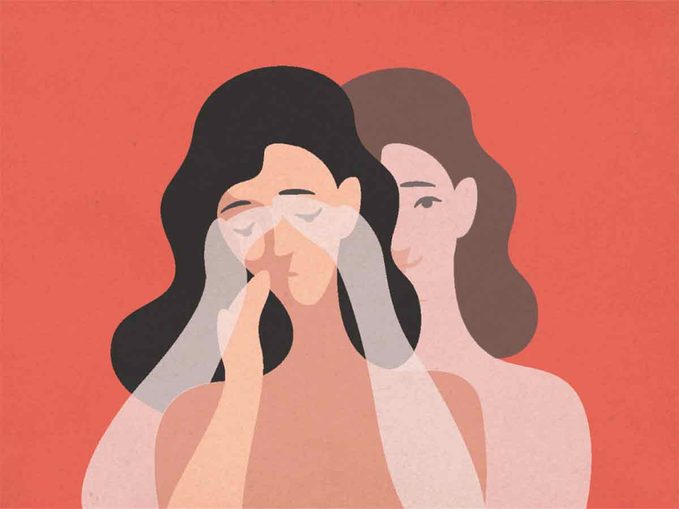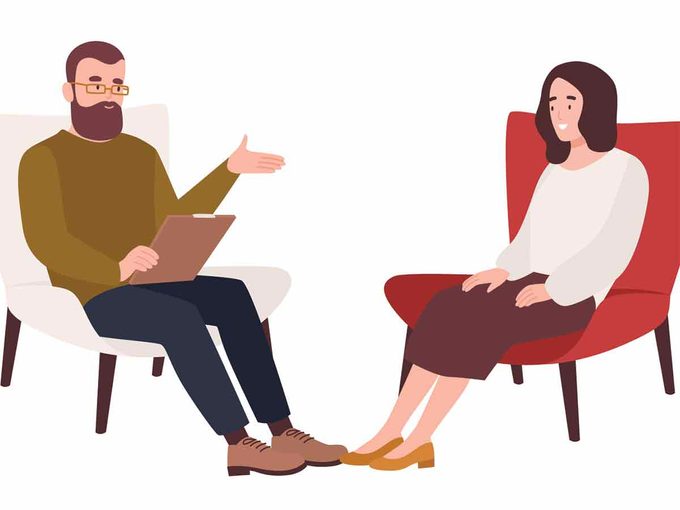Treatment for Anxiety Disorders Isn’t Just About Medication—It’s About Tackling the Root Cause
We all need to be anxious sometimes. It’s a normal, useful response to life’s challenges and dangers. But for some of us, occasional bouts of anxiety last weeks and even months. Then it’s considered generalized anxiety disorder.

What are anxiety disorders?
The human body has been conditioned to quickly respond to threats with fear and anxiety. This reaction, termed the “flight or fight response,” primes the body to outrun, outthink, or outfight any opponent in sight. In fact, when you’re moderately anxious, your ability to perform is greatly enhanced. That is why so many people think they actually do better when they’re under stress.
When you have a generalized anxiety disorder (GAD), your body fails to switch off that response when the threat is gone. Instead, it treats ordinary events as life-threatening. A bill is due, and the thought of it sends your heart racing. You sweat and fret at the thought of entering a room full of strangers. Sometimes your anxious feelings are just free-floating, with no discernible cause. Your brain profile begins to look like that of someone living in a war zone, with chemicals called neurotransmitters and a compound called gamma-aminobutyric acid (GABA) all out of whack. Bouts of misplaced anxiety can last from a few moments to years.
Classic symptoms of GAD include persistent dire feelings and unwanted thoughts, chest pains, an inability to properly concentrate, irritability, trembling, dry mouth, and hot flashes or chills.
Who is at risk for anxiety disorders?
Studies of twins have found that in a third of cases, GAD has genetic causes. If a parent or sibling has it, you’re more likely to show symptoms. The other two-thirds of the time, GAD comes from learned behaviours. Generally, it strikes children and teens. (See everyday things that can trigger anxiety.)
What are the treatments for anxiety disorders?
Here’s the encouraging news: Half the people who receive proper treatment for GAD show improvement within three weeks. And 75% will feel a lot better within nine months.
The type of treatment regimen you need depends on the severity of your symptoms. If GAD isn’t interfering with your life, you might begin with nonpharmaceutical options. Because many anxiety drugs have side effects that can make you dependent on them, it’s often best to see them as a second choice. (Here’s how to manage your anxiety triggers.)
If GAD is making the simplest tasks impossible, you’ll want to fight back with powerful medicines. Combining drugs and behavioral techniques can be even more effective. Whatever route you take, make sure you stick with it over the long haul: One study reported that two-thirds of those who were treated for GAD for only six weeks had symptoms return. Half required additional medications.
What are the common medications for anxiety disorders?
Numerous drugs have been approved to treat anxiety disorders. This is fortunate because some drugs have unacceptable side effects or just don’t work for everyone. You won’t know for sure how a particular medication will affect you until you start taking it, so if it’s not right for you, ask your doctor to prescribe another.
If you’re really handcuffed by anxiety, chances are you’ll start with benzodiazepines, a group of fast-acting sedatives that includes stalwarts like diazepam (Valium), alprazolam (Xanax), and lorazepam (Ativan). Good for short-term relief, these drugs also have well-known side effects. Most notable is excessive sedation, which is eased when the dose is lowered. If taken regularly, they can be habit-forming. Some people report feeling out-of-focus, sometimes dangerously so. A Canadian study, for instance, found that those using benzodiazepines were 26% more likely to have a car accident.
Benzodiazepines work quickly, often within an hour. So they’re useful until an antidepressant can kick in, which usually takes from two to five weeks. While older tricyclics can be effective, most doctors use the well-known SSRIs (selective serotonin reuptake inhibitors), such as paroxetine (Paxil) and venlafaxine (Effexor).
Newer antidepressants like trazodone (Desyrel) and nefazodone (Serzone) help you get a better night’s sleep; growing evidence shows that regular, good-quality sleep lessens anxiety. Another new drug, buspirone (BuSpar), has also gained wide acceptance because it has few side effects.
Even if antidepressants work, you’ll want to keep the quicker-acting benzodiazepines around for the occasional times when things get overwhelming. A final word of advice on medications: Don’t consider them a substitute for psychological counseling. Drugs are great at treating the symptoms, but they don’t tackle the root cause.
What lifestyle changes should be made?
Along with psychotherapy and medication, the bulwark of anxiety treatment, changes you make in your everyday life can help you deal with an anxiety disorder on a very practical level. Try to:
- Get moving. Regular aerobic exercise (not strength or resistance training) has been shown to noticeably reduce anxiety. Jog, walk, swim, bike, even take yoga at least three times a week. Expect improvement in your mood (and waistline) in about three months. (This brain exercise could also help.)
- Look in your fridge. A healthful diet is important for lowering anxiety levels. Add as many plant-based options as possible. Consider adding these nutrients to your diet to help ease anxiety symptoms. These vitamins can help, too.
- Develop good sleep habits. Research shows that people with insomnia are at increased risk for developing anxiety. Avoid heavy meals before bedtime. Go to bed and get up close to the same time every day. Don’t work out within three hours of bedtime, as it takes that long to cool all the way down.
- Leave the booze in the bottle. A few drinks may seem like a good way to calm down, but alcohol interferes with your sleep. It can also create an unhealthy dependence that may increase, not decrease, your anxiety over the long run.

Should I try therapy?
When it comes to GAD, a psychotherapist’s office is one of the best places to learn to cope with the outside world. Here, three types of therapy to consider:
Cognitive-behavioral therapy
This option is especially useful if you have GAD. Two studies in the mid-1990s found that this technique caused the same beneficial brain changes as those found in people taking Prozac, a drug commonly prescribed for GAD. This therapy helps you make connections between the way you think and the way you feel. People who are chronically anxious often criticize themselves harshly, which can trigger even more anxiety. Cognitive therapy teaches you to substitute helpful thoughts for negative ones, develop coping strategies, and use imagery to ease your anxiety.
Insight therapy
Also known as the “talking cure,” insight therapy was pioneered by Sigmund Freud. The technique involves intensive probing of the past and your mind’s inner workings. The idea is to eventually produce that flash of understanding that leads you to the reason for your anxiety disorder symptoms. Insight is accompanied by an emotional release that helps you heal.
Supportive psychotherapy
You know how good it is to find an understanding and sympathetic ear, how calming it is to have someone you trust tell you that everything’s going to be okay? That’s the essence of supportive psychotherapy. An encouraging, positive psychiatrist or psychologist talks you through the tough spots and helps you to see that everything is going to work out.
Are there alternative therapies for anxiety disorders?
The medicinal herb valerian is helpful as a mild sedative and sleep aid. Look for standardized capsules, tablets, or extracts, and follow the instructions on the label. Don’t use valerian for more than two weeks in a row, however, and avoid sedatives (including alcohol) while taking it. St. John’s Wort can also help boost your mood and ward off depression.
Relaxation techniques can also produce excellent results: Meditation, mindfulness, acupuncture, massage, and stress-reduction audiotapes are all fine ways to diffuse tension and anxiety. You can also try one of these apps that can help calm you down.
What questions should you ask your doctor?
- Why are you giving me a drug for depression when I have anxiety?
- Are there any prescription or over-the-counter drugs that could be causing my anxiety?
- Is it okay to drink alcohol?
- Could a medical condition be contributing to my anxiety?
- Is there anything my family and friends can do to help me through this? (Here’s how to have the talk with your family about your mental illness.)
Any tips for living with an anxiety disorder?
If you’re living with an Anxiety Disorder, here are a few hints for taking control:
- Breathe deeply. Sit or lie with a pillow at the small of your back. Breathe in slowly and deeply so that your stomach moves out. Say the word “relax” to yourself just before exhaling. Exhale slowly, letting your stomach pull back in. Do this until you’re calm. (You can also try this pressure point, which can help calm you down.)
- You shall overcome. Hold this thought in your mind. For most people, generalized anxiety disorder can be quelled within a few months with proper treatment.
- Pay attention to your overall health. Many people with GAD experience depression, which can be effectively treated. Chronic anxiety has also been linked to high blood pressure and an increased risk of heart attacks. Get checked out completely to be sure you’re on a thorough treatment track.
This story was adapted from “Know Your Options: The Definitive Guide to Choosing The Best Medical Treatments” in Reader’s Digest, 2008.




